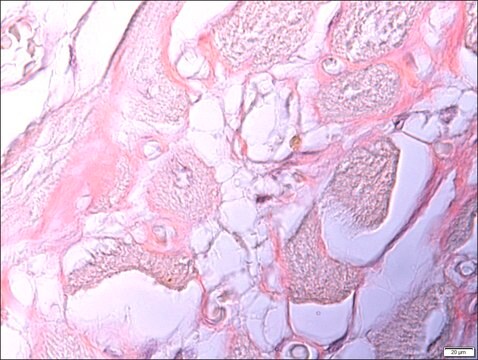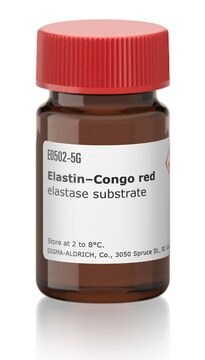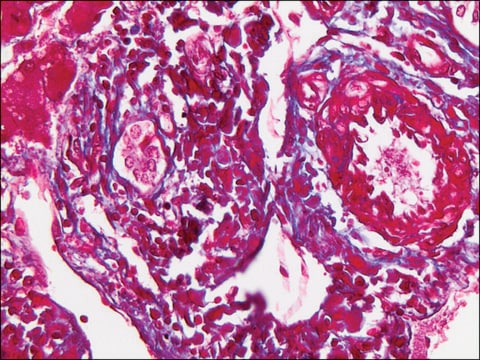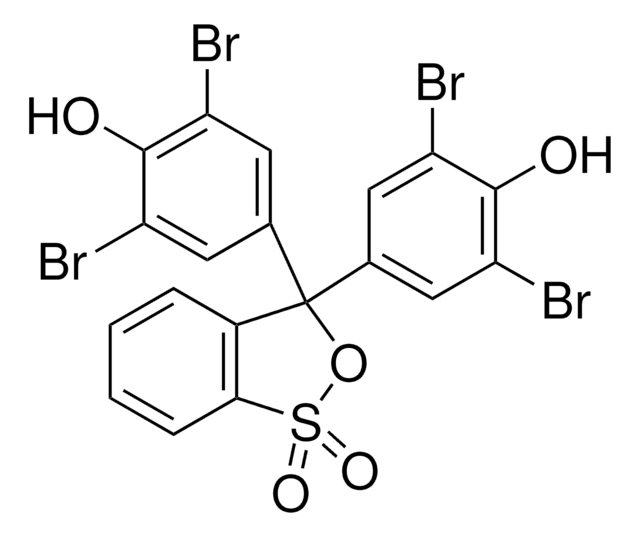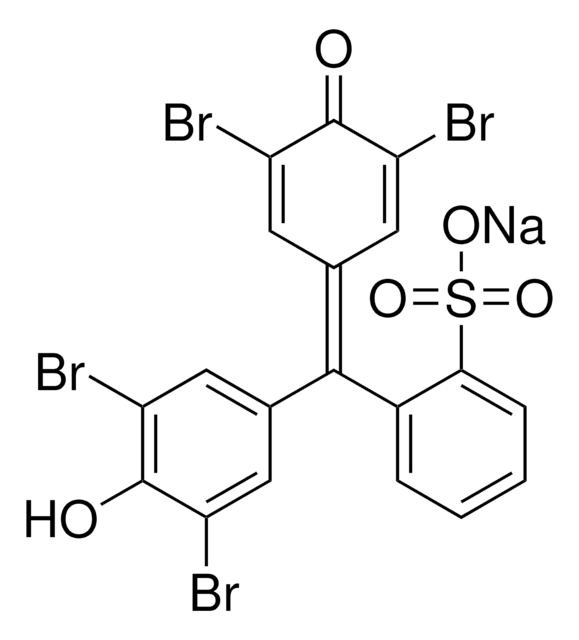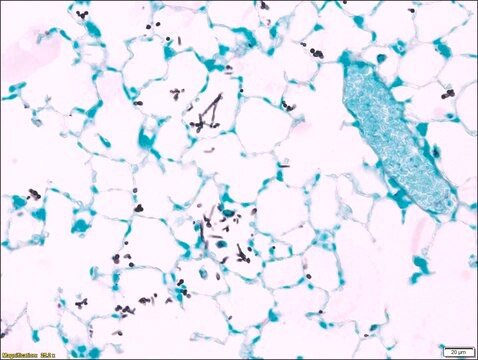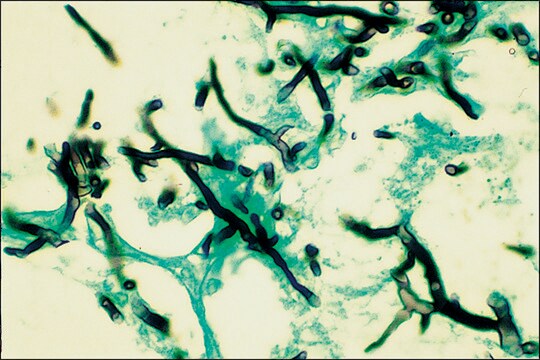推薦產品
特點
according to Highman
品質等級
IVD
for in vitro diagnostic use
應用
clinical testing
diagnostic assay manufacturing
hematology
histology
detection
儲存溫度
15-25°C
一般說明
The Congo Red staining kit - Kit for the detection of amyloid acc. to Highman, is used for human-medical cell diagnosis and serves the purpose of the histological investigation of sample material of human origin for example histological sections of e. g. the kidney, the intestine, or the liver.
This Congo red staining kit contains all the reagents necessary for staining amyloid in histological tissues. Amyloid is a homogenous structure made up of protein fibrils (each between 8 and 15 nm in diameter) that can be stained eosinophilically, which e. g. in the case of amyloidosis forms deposits in the intercellular space. All deposits of amyloid contain similar protein fibrils that are resistant to the body′s natural defence mechanisms and that once they have formed cannot be eliminated.The Congo red staining principle is based on the formation of hydrogen bridge bonds with the carbohydrate component of the substrate. Congo red is an anionic dye and is capable of depositing itself in amyloid fibrils, which then exhibit a conspicuous dichroism under polarized light. The tissue stained with Congo red appears orange-red under the transmitted-light microscope; under polarized light, however, the amyloid deposits show up as brilliant green double-refraction images against a dark background. Other structures also stained by Congo red, e. g. collagen, however are not visualized under polarized light. Staining may be technically difficult when the paraffin sections used are too thin (<5 μm) or when the tissue is too strongly over-stained.
The kit is sufficient for up to 50 applications. This product is registered as IVD and CE marked. For more details, please see instructions for use (IFU). The IFU can be downloaded from this webpage.
This Congo red staining kit contains all the reagents necessary for staining amyloid in histological tissues. Amyloid is a homogenous structure made up of protein fibrils (each between 8 and 15 nm in diameter) that can be stained eosinophilically, which e. g. in the case of amyloidosis forms deposits in the intercellular space. All deposits of amyloid contain similar protein fibrils that are resistant to the body′s natural defence mechanisms and that once they have formed cannot be eliminated.The Congo red staining principle is based on the formation of hydrogen bridge bonds with the carbohydrate component of the substrate. Congo red is an anionic dye and is capable of depositing itself in amyloid fibrils, which then exhibit a conspicuous dichroism under polarized light. The tissue stained with Congo red appears orange-red under the transmitted-light microscope; under polarized light, however, the amyloid deposits show up as brilliant green double-refraction images against a dark background. Other structures also stained by Congo red, e. g. collagen, however are not visualized under polarized light. Staining may be technically difficult when the paraffin sections used are too thin (<5 μm) or when the tissue is too strongly over-stained.
The kit is sufficient for up to 50 applications. This product is registered as IVD and CE marked. For more details, please see instructions for use (IFU). The IFU can be downloaded from this webpage.
應用
Kit for the detection of amyloid acc. to Highman
分析報告
Suitability for microscopypasses testAmyloidpink to red; in polarized ligt green metachromasisNucleidark blueConnective tissuelight red
訊號詞
Danger
危險分類
Carc. 1B - Eye Irrit. 2 - Flam. Liq. 2 - Met. Corr. 1 - Skin Irrit. 2
儲存類別代碼
3 - Flammable liquids
分析證明 (COA)
輸入產品批次/批號來搜索 分析證明 (COA)。在產品’s標籤上找到批次和批號,寫有 ‘Lot’或‘Batch’.。
客戶也查看了
我們的科學家團隊在所有研究領域都有豐富的經驗,包括生命科學、材料科學、化學合成、色譜、分析等.
聯絡技術服務
